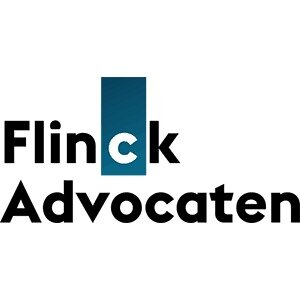Best Tax Increment Financing Lawyers in Netherlands
Share your needs with us, get contacted by law firms.
Free. Takes 2 min.
Or refine your search by selecting a city:
List of the best lawyers in Netherlands
About Tax Increment Financing Law in Netherlands
Tax Increment Financing (TIF) is a public financing method used commonly around the world to subsidize infrastructure, including public projects, by capturing the future increase in tax revenues generated by the improvements. In the Netherlands, TIF is relatively less common compared to countries like the United States or United Kingdom. However, it remains a tool through which municipalities can stimulate urban development projects, fund infrastructure upgrades, and electrify economic regeneration areas without directly increasing taxes.
Why You May Need a Lawyer
Navigating the complexities of Tax Increment Financing in the Netherlands can be challenging. Here are some common situations where legal assistance might be crucial:
- Understanding the eligibility requirements and application process for TIF.
- Negotiating agreements between municipalities and developers.
- Ensuring compliance with national and local regulations.
- Resolving disputes between stakeholders involved in TIF deals.
- Auditing or reviewing financial arrangements to ensure legitimate fund utilization.
Local Laws Overview
While the Netherlands does not have specific laws that solely govern Tax Increment Financing, various national-level regulations and municipal policies influence its implementation:
- Municipal Autonomy: Local governments have significant autonomy, which allows them to explore TIF as a tool for local development cautiously.
- Spatial Planning and Economic Development Act: This act guides development projects and can indirectly impact TIF schemes.
- Public-Private Partnership (PPP) Framework: Facilitates collaboration and provides a structured approach to engage in TIF projects.
Frequently Asked Questions
What is the primary benefit of TIF?
TIF allows municipalities to invest in infrastructure enhancements at no immediate extra cost to taxpayers, leveraging future economic growth to fund current improvements.
Can residential developers utilize TIF?
Typically, TIF is more frequently used for commercial and mixed-use developments, but in some cases, residential projects that promise substantial public benefits might qualify.
Is TIF widely used in the Netherlands?
TIF is not as widespread in the Netherlands as in other countries but remains a valuable occasional tool for particular urban regeneration projects.
How do municipalities decide to pursue a TIF project?
Local governments consider potential tax revenue increase, project feasibility, community impact, and alignment with strategic urban planning goals when deciding on TIF projects.
Who approves TIF projects?
Municipal councils typically review and approve TIF projects, ensuring they align with local development objectives.
Can TIF lead to increased taxes for the community?
No, TIF is designed to utilize the increase in tax revenues from developments to repay the initial investment, not directly increase taxes for existing taxpayers.
How are TIF funds managed?
TIF funds are usually managed through special government accounts, monitored to ensure they’re used for intended development purposes.
What are the risks associated with TIF?
Potential risks include development not meeting expectations, leading to insufficient tax increment to cover the initial financial outlay, and increased public debt if mishandled.
How long do TIF arrangements last?
The duration can vary, but agreements typically cover the period necessary to recoup public investment, often between 15-25 years.
Can TIF be used in rural areas?
While more common in urban regions, TIF can be applied in rural areas if a significant development opportunity with substantial tax increment potential is identified.
Additional Resources
For those seeking further information or assistance with Tax Increment Financing in the Netherlands, the following resources may be helpful:
- Consult the Ministry of Infrastructure and Water Management for regulations affecting urban planning.
- Seek guidance from local municipal development offices who may offer insights into regional TIF opportunities.
- Engage with organizations such as Platform31 which specializes in urban development and financing strategies.
Next Steps
If you're considering initiating a TIF project or need assistance navigating its legal intricacies, the following steps can guide your process:
- Conduct preliminary research and feasibility studies to understand the potential tax increment.
- Engage with local government officials to discuss project proposals and gain insight into municipal strategies.
- Consult with a legal professional specialized in public finance or development law to ensure compliance and address any legal concerns.
- Develop a detailed financial plan and contract agreements, considering the potential risks and benefits.
Seeking professional legal advice early can help streamline the TIF process, mitigate risks, and maximize successful outcomes for development projects in the Netherlands.
Lawzana helps you find the best lawyers and law firms in Netherlands through a curated and pre-screened list of qualified legal professionals. Our platform offers rankings and detailed profiles of attorneys and law firms, allowing you to compare based on practice areas, including Tax Increment Financing, experience, and client feedback.
Each profile includes a description of the firm's areas of practice, client reviews, team members and partners, year of establishment, spoken languages, office locations, contact information, social media presence, and any published articles or resources. Most firms on our platform speak English and are experienced in both local and international legal matters.
Get a quote from top-rated law firms in Netherlands — quickly, securely, and without unnecessary hassle.
Disclaimer:
The information provided on this page is for general informational purposes only and does not constitute legal advice. While we strive to ensure the accuracy and relevance of the content, legal information may change over time, and interpretations of the law can vary. You should always consult with a qualified legal professional for advice specific to your situation.
We disclaim all liability for actions taken or not taken based on the content of this page. If you believe any information is incorrect or outdated, please contact us, and we will review and update it where appropriate.
Browse tax increment financing law firms by city in Netherlands
Refine your search by selecting a city.
















